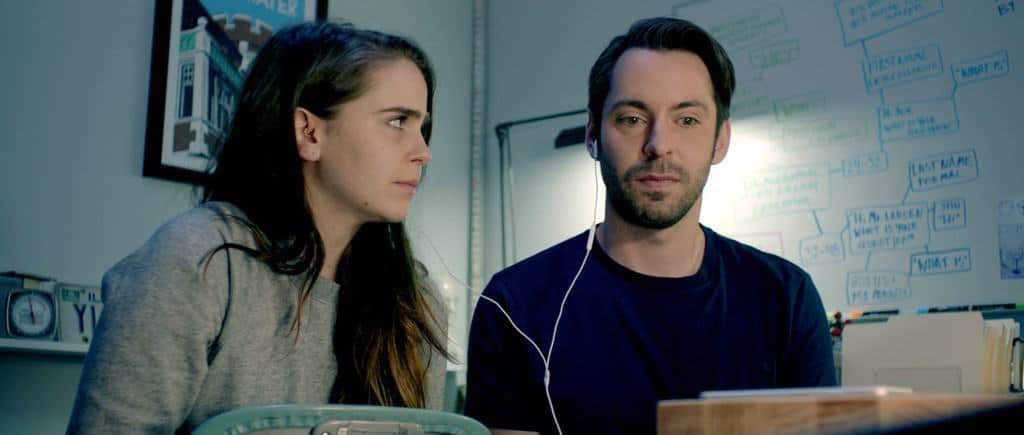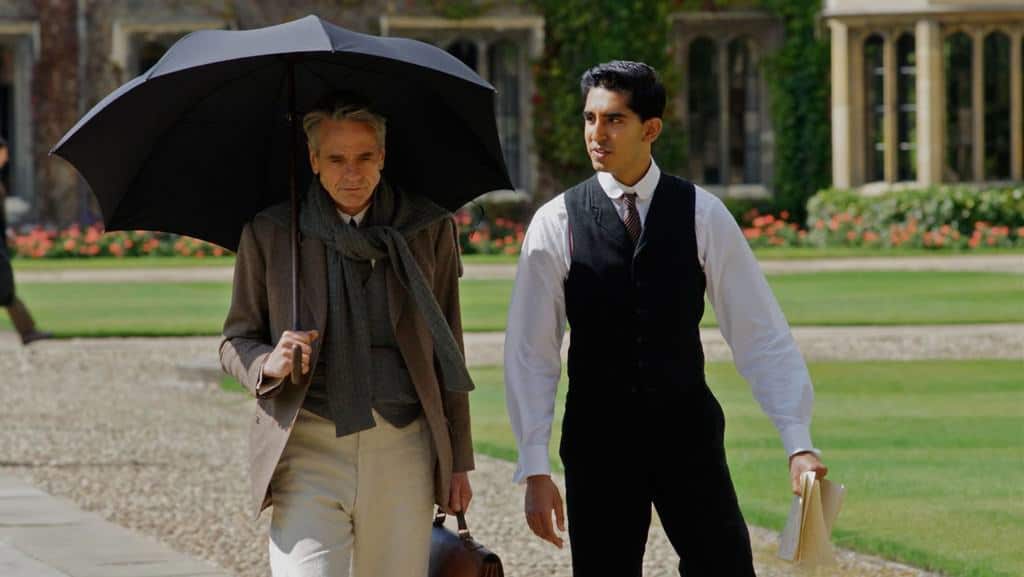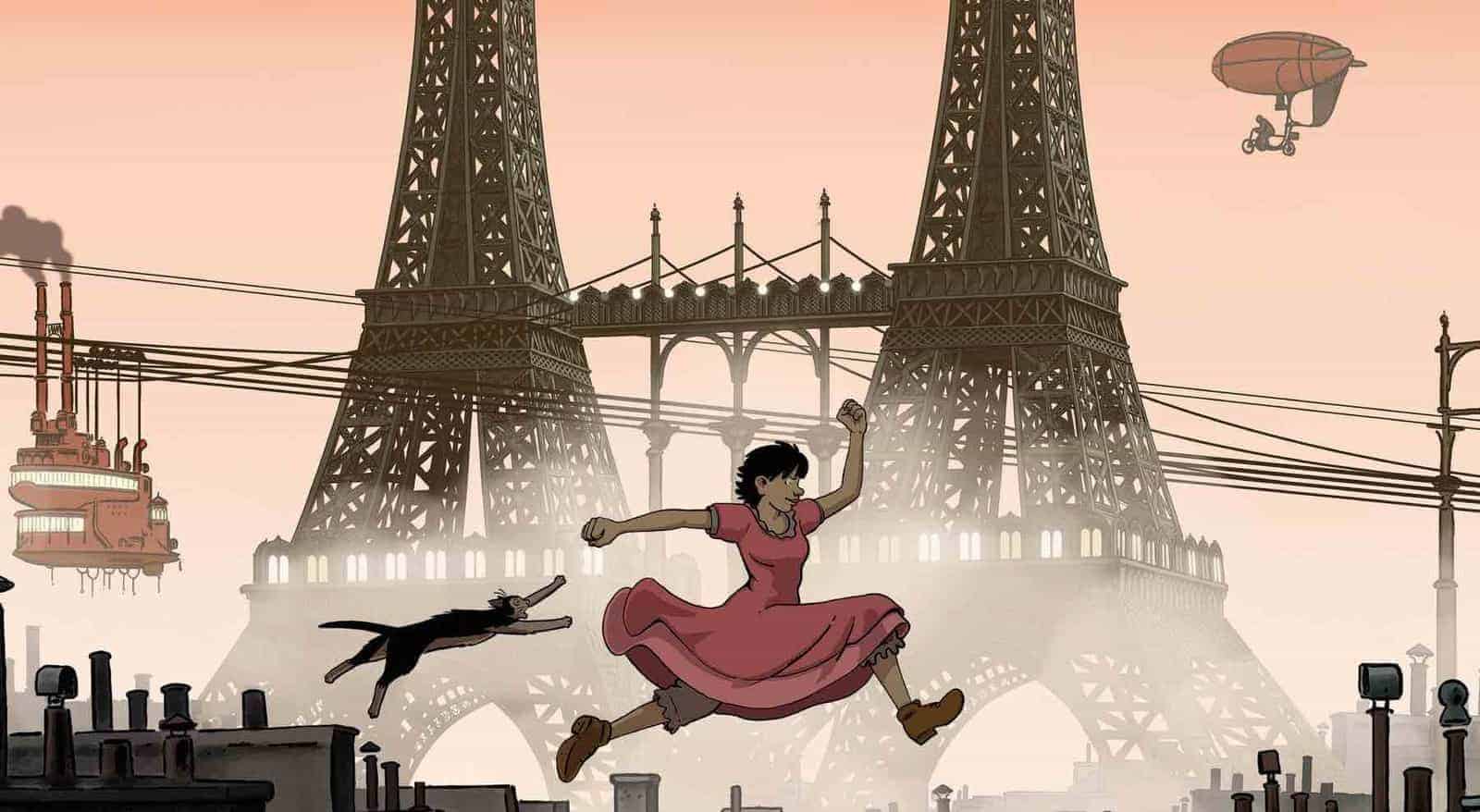The SF Film Festival (SFIFF) Director of Programming Rachel Rosen discusses the Science in Film Sloan Screenings at SFIFF: The Man Who Knew Infinity and Operator.

This year’s San Francisco International Film Festival (SFIFF) marks the beginning of the programming collaboration between SFIFF and the Alfred P. Sloan Foundation, “the nation’s leading philanthropic grantor for science and the arts.” The goal of their collaboration is to “enhance public understanding of science through the language of film.” At this year’s festival, they’ve collaborated to host two Sloan Science in Cinema screenings: Operator and The Man Who Knew Infinity. I sat down with the festival’s director of programming, Rachel Rosen, to discuss her collaboration with Sloan, how these films were selected, and what we can expect to see in the star-studded Q&A at The Man Who Knew Infinity screening.
Seventh Row (7R): How did the San Francisco Film Society’s partnership with the Alfred P. Sloan Foundation for Science in Film begin?
Rachel Rosen (RR): The partnership started to form after last year’s SFIFF, which we closed with Michael Almereyda’s Experimenter — exactly the kind of film Sloan is interested in. I think both Sloan and the film society started to recognize that our goals had a lot of commonality, and that it might make sense for us to work together. Partly by design and partly by circumstance, there was a lot of tech related stuff in our festival last year. Obviously, that’s an area of interest for Sloan. It just seems like a natural fit for us to work together. Part f the reason there’s a lot of tech-related movies in our festival is because we’re in an area where there’s a lot of science and technology happening. It did just seem like a great fit for us to work together to highlight films that explore science and technology.
7R: When you’re programming for the festival, are you specifically looking for science and tech-related films?
RR: Up until this year, it was happening organically meaning that in looking for films that I think will be of interest to SFIFF audiences, and in looking for films that approach filmmaking using a lot of different forms and exploring different topics or subjects, we’ve naturally ended up with a lot of films that look at science and technology.
As we went into the agreement, we did it because we thought it was relevant to what we were doing anyway. I was maybe just monitoring what we were seeing and inviting to make sure that that was still the case this year rather than I set off in a completely different journey to find films relating to science and technology.
7R: There are both documentary films and fiction films in the festival that deal with science and technology.
RR: The two that Sloan is specifically supporting this year are narratives. They tend to prefer to highlight narratives, I think just because narratives can have a bigger impact on the general public that may not have been specifically seeking out a film about science and technology. A lot of the films that they support that we happen to have shown are very much about science and technology without being science and technology lessons. But there are some wonderful documentaries in the festival that explore all sorts of themes about that, for sure.
7R: Absolutely. I was thinking in particular docs like Nuts, Unlocking the Cage, and Lo and Behold. When you’re picking those, is it just coincidental that they’re about science and technology? Many of these are by major filmmakers anyway.
RR: It’s really hard to the best case scenario for me is that we’re choosing the film for 10 different reasons. “Oh Werner Herzog, I love his movies. and oh Werner Herzog made a movie about technology and connectivity.” It both addresses things that we think will be of interest to our audience and does them artfully and skillfully and using the medium in an interesting way. It’s hard to say — I was attracted to it simultaneously for all of those reasons.

7R: How did you decide on The Man Who Knew Infinity as one of your Sloan Screenings??
RR: A couple of people from our film team saw the film when it played at the Toronto International Film Festival and just really liked it. In many ways, it’s a classically told biopic or biography of a real person. What I like about it is one of the themes that is very prevalent in this year’s festival, but is often prevalent in the festival, because it’s a concern of creative people, is creative expression. We have films about a choreographer or other kinds of artists. The way this film treats mathematics fits into those themes for me. It’s just that mathematics is the creative expression of the main character.
I feel a lot of resemblance between that and, for instance, Morgan Neville’s documentary about Yo-Yo Ma and the Silk Road Ensemble. which looks at a group of musicians from around the world. By playing together they bring something of their own cultures, but they have to learn to communicate with other cultures. Music is the bridge through which they communicate.
You could say all those things of the mathematicians in The Man Who Knew Infinity. So that’s what attracted us. It’s a great story, well told. It’s very moving. I don’t think he’s a person that’s a household name so it’s always nice to have biographies of people who may not have been appreciated in the way that they could have been.
7R: For that film, you’ve got quite a few guests coming, including the director Matt Brown and two of the actors, Dev Patel and Stephen Fry. But also a couple of mathematicians. Is there anything special we can expect from that Q&A?
RR: We have two guest mathematicians, one of whom was a consultant on the film. And then we have Edward Frankel moderating the Q&A who is also another world renowned mathematician.
We can expect that it won’t just be about how Stephen Fry got into character. There will be some math dicussions. It’s hard to predict what will happen. I think some of the discussion will be about how to articulate the beauty of mathematics through cinema and how the mathematician who was the consultant on the film worked with the filmmakers to make the story compelling.
We first started doing what we call “enhanced presentations” at last year’s festival. IT’s an idea that Noah Cowan helped us formulate. The first year he started, he had just started at the festival and he came to the festival without having shaped t dramatically that year. What he started to notice was in every screening at San Francisco, there was some world authority in the audience who would ask a question and then this incredible discussion would begin. So after the festival that year, we decided to make this not 100% serendipitous and maybe try to make it happen on the stage.
In San Francisco, we’ve got these great universities and a great creative community. When we had the Black Panthers screening last year, to invite a bunch of party members who may not have been in the film to come and be a part of the screening. That’s a model that we had pioneered last year. Then, when we were talking to Sloan, it just seemed like a really great way of something that we were doing that seemed to make sense to apply to that program.
When we did our special award to The Martian, we had a producer from the film and the author of the book that it was based on and also this amazing NASA scientist. The first two, you might have expected to be great on stage; they’d been touring around with the film and were used to promoting it. But it was like three scientist standup entertainers — they were amazing — talking about the real science of space exploration. It seemed like a great model to us, since we’re here in the Bay Area and there are great mathematicians.
It’s not going to be a hard math discussion that people in the audience will feel like they’re auditing an advanced university course. But hopefully, these scientists and mathematicians will be able to articulate what they find meaningful and interesting about the worst they do, in a way that will make it accessible to general audiences.
7R: How did Operator get selected?
RR: It was actually just a film that was submitted to the festival through the open submission. I like that it deals with the issue of data and technology and how they affect our lives in a very light, slightly funny way. I found it very charming in the way it dealt with the data obsession that I feel like I’m listening to people talk about all the time.
We work together with the Sloan Foundation as we’re programming to let them know films that we’re interested in including. It’s a bit of a learning process for me. They’ve been going since 1997, in terms of science in film. I will send them films to watch and sometimes they’ll be like “that’s a lovely film, but it’s not really hard science, Rachel.” So this is one of the ones we programmed that fit the bill. And I think that they had supported it in the past. I think they gave it some support at the script-writing level.
7R: Do you find that the collaboration with Sloan has in any way changed your approach to programming?
RR: Not really. It’s changed the level of my awareness of science in film. I may be a little bit less precise than they are, but that’s interesting. I had some things in mind that I though “Oh, Sloan’s going to think this is great!” They actually did, there was more than one film that they liked. But they were like “This is a lovely film and audiences are going to enjoy it, but no.” And this one I wouldn’t have necessarily initially connected it to Sloan because it’s very fanciful. In some ways, it’s very recognizable but what it does is takes a reality and heightens it, not to an extreme, but just enough that it’s not realistic but so close to the realm of possibility that it really had something to say about the reality.
7R: Do you have plans for other collaborations with Sloan throughout the year?
RR: The festival presentations are just a third of what we’re doing with Sloan. I think, a large part of what we’re doing with them has to do with the Filmmaker 360 program, which is not my domain. We have various fellowships in the program, and one of them is going to be Science in Cinema related. This is another area where we supported the film Advantageous before we were involved with Sloan. And then we’ll continue to do that Science in Cinema Award at the end of the year for a finished film that was released during the calendar year.

